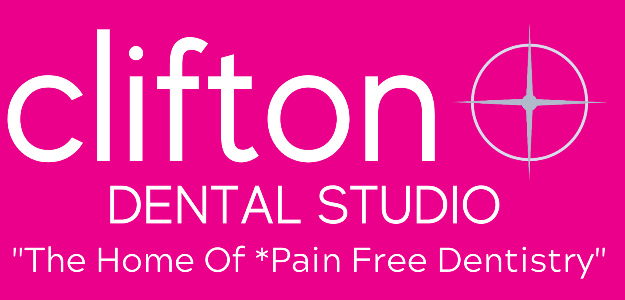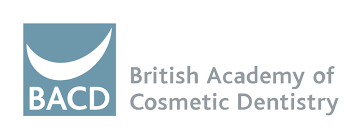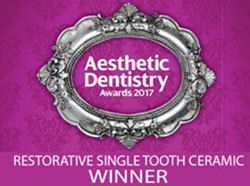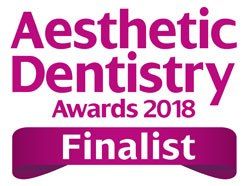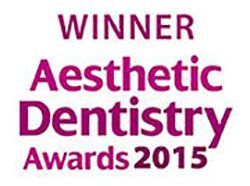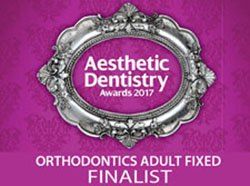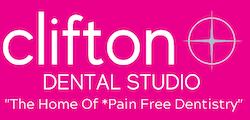Posts Tagged ‘gum disease’
Suffering from gum disease? A Bristol dentist has the answer
Gum disease isn’t curable in its advance stage; this is called Gingivitis and is the periodontal disease that eats away at the gum line. It is caused by bacteria infecting the gums by entering them through cuts and sores on the bottom of the ridges. Bacteria is a resident of our mouths and we need it to get rid of the food residue that lingers in between the teeth. However, like all good things it has its drawbacks and acid production is one of them, this eats away at the tooth enamel and the gums and sets them up for infection. Once an infection takes a hold a lot of damage can be done in quite a short period of time, obvious ones are an abscess or a boil which can both be very painful. A dentist cannot work on a tooth that is infected by either one of these, first they will need to prescribe a course of antibiotics to clear up the complaint. Then they can look at the root cause of the problem, this is usually due to bacteria seeping into the gums and can lead to further problem. The worse case scenario as mentioned is Gingivitis which is an advanced case of periodontal disease; and is irreversible. Once the gum line disappears then tartar builds up on the exposed root of the tooth and wears it away, this always leads to the loss of the tooth prematurely unless it is kept at bay. One of the best ways is to make sure you floss in between the teeth at every opportunity, and especially after a snack or meal. Plaque is dead bacteria and tartar is an accumulation of that plaque, your dentist will clean tartar away when they do your half yearly check up, but you must also do your bit to keep this build down to a minimum.Reversing gum disease why you should start reversing gum disease now by a Bath dentist
The worse problem with a periodontal disease such as Gingivitis is that it is often left too long before we start to seek treatment. Whenever gum disease treatment is left for another day the condition can only go one way, and that causes the condition to worsen over time. This will always end in tears, and in the worse case scenarios it will also end up with a much more serious condition. However, advanced gum disease treatment is easily avoidable if the problem is seen to by a dentist, and before it spreads to the area above the gum line. A dentist will generally scrape away the tartar that is a build up of bacteria which likes to congregate around the teeth’s roots, and in between them. There is no cure for gum disease as once it sets in it will cause irreparable damage. It is never too late to start a good regime of oral hygiene care though, even when the damage has been done and the gum line is eaten away. The good news is that although it isn’t curable gum disease can successfully be kept in touch, and healthy teeth can be brought back to a state of top condition. It is highly recommended that once the first signs of gum disease are noticed an appointment is made with your dentist, it is so important to catch any gum disease before too much of the gum line is lost; infections in the gum can leak into the blood stream and cause other problems with platelet production. This has been researched heavily, and the results indicate a link between heart disease and gum disease. So we can now see that getting gum disease treated early on in the process will prevent a lot more problems than just our oral care ones.Stunning cosmetic dentistry treatments available from Gloucester dentist
 As anyone who has experienced serious dental problems will tell you, it is definitely a good idea to look after your teeth now to prevent problems occurring in the future. Dental health is something that is very much in your own hands. Effective cleaning and regular dental check ups with a Gloucester dentist can help to prevent costly and painful dental treatment for tooth decay and gum disease.
Gloucester dentists are available for general dental health check ups and are able to offer state-of-the-art dental treatment and the latest advice on effective cleaning. A short check up every six-months as recommended could help you to prevent any significant dental problems and catch any signs of tooth decay and gum disease as early as possible.
A poor standard of dental hygiene can lead to a build up of plaque in the mouth and around the teeth. Plaque is a bacteria-rich substance which releases acids that breaks down the protective layer of enamel around the teeth. This can lead to dental cavities ultimately responsible for infections, abscesses and tooth loss. Plaque can be easily removed by effective brushing and flossing twice a day, as recommended by Gloucester dentists.
Dentists are also able to effectively treat all forms of dental problems ranging from minor cavities to knocked out or broken teeth. Dental technology has advanced rapidly in recent years and incredibly effective and realistic treatments are available for all forms of dental concerns. There is also a wide range of cosmetic dentistry procedures available to make aesthetic improvements to give you the smile you have always wanted.
As anyone who has experienced serious dental problems will tell you, it is definitely a good idea to look after your teeth now to prevent problems occurring in the future. Dental health is something that is very much in your own hands. Effective cleaning and regular dental check ups with a Gloucester dentist can help to prevent costly and painful dental treatment for tooth decay and gum disease.
Gloucester dentists are available for general dental health check ups and are able to offer state-of-the-art dental treatment and the latest advice on effective cleaning. A short check up every six-months as recommended could help you to prevent any significant dental problems and catch any signs of tooth decay and gum disease as early as possible.
A poor standard of dental hygiene can lead to a build up of plaque in the mouth and around the teeth. Plaque is a bacteria-rich substance which releases acids that breaks down the protective layer of enamel around the teeth. This can lead to dental cavities ultimately responsible for infections, abscesses and tooth loss. Plaque can be easily removed by effective brushing and flossing twice a day, as recommended by Gloucester dentists.
Dentists are also able to effectively treat all forms of dental problems ranging from minor cavities to knocked out or broken teeth. Dental technology has advanced rapidly in recent years and incredibly effective and realistic treatments are available for all forms of dental concerns. There is also a wide range of cosmetic dentistry procedures available to make aesthetic improvements to give you the smile you have always wanted.
Bristol dentist completes smile with dental bridge
 Having missing teeth in your smile can be embarrassing and cause a loss of confidence but it can also have a series of adverse physical effects as well. Teeth missing from the dental arc can cause a change in bite, shifting of other teeth, speech impediments and an increased risk of tooth decay and gum disease. It is therefore important to replace the missing teeth with artificial dental substitutes as soon as possible.
One option is to have a dental bridge fitted by a Bristol dentist. Dental bridges are fixed artificial teeth attached to dental crowns on either side of the gap and can be used to replace one or more missing teeth. There are several different types of dental bridge that can be used depending on the circumstances of the individual patient but typically all bridges will include an artificial bridging tooth called a pontic.
If you are a suitable candidate for treatment the dentist will construct the bridge over the course of several visits. This may involve rebuilding damaged teeth so that they are strong enough to receive a dental crown. Once the crowns are in place, a pontic specifically chosen to fit the gap exactly and match the colour of the existing teeth can then be fixed using metal strips and dental bonding. The cost of the bridge will vary depending on the types of material used in manufacturing the bridge and the extent of the damage to the original teeth but will usually fall between £500 and £1.500. Once fixed, the dental bridge can last up to twenty years if properly cleaned and maintained through a strict oral hygiene regime. Although it would obviously be preferable to have your original teeth intact, dental bridge treatments provide an incredibly lifelike and sturdy alternative to real teeth and can prevent a series of unpleasant negative effects otherwise associated with missing teeth.
Having missing teeth in your smile can be embarrassing and cause a loss of confidence but it can also have a series of adverse physical effects as well. Teeth missing from the dental arc can cause a change in bite, shifting of other teeth, speech impediments and an increased risk of tooth decay and gum disease. It is therefore important to replace the missing teeth with artificial dental substitutes as soon as possible.
One option is to have a dental bridge fitted by a Bristol dentist. Dental bridges are fixed artificial teeth attached to dental crowns on either side of the gap and can be used to replace one or more missing teeth. There are several different types of dental bridge that can be used depending on the circumstances of the individual patient but typically all bridges will include an artificial bridging tooth called a pontic.
If you are a suitable candidate for treatment the dentist will construct the bridge over the course of several visits. This may involve rebuilding damaged teeth so that they are strong enough to receive a dental crown. Once the crowns are in place, a pontic specifically chosen to fit the gap exactly and match the colour of the existing teeth can then be fixed using metal strips and dental bonding. The cost of the bridge will vary depending on the types of material used in manufacturing the bridge and the extent of the damage to the original teeth but will usually fall between £500 and £1.500. Once fixed, the dental bridge can last up to twenty years if properly cleaned and maintained through a strict oral hygiene regime. Although it would obviously be preferable to have your original teeth intact, dental bridge treatments provide an incredibly lifelike and sturdy alternative to real teeth and can prevent a series of unpleasant negative effects otherwise associated with missing teeth.
Prevent dental decay with oral hygiene advice from Swindon dentist
 When it comes to oral hygiene the old maxim that prevention is better than cure is never more prevalent. Maintaining a good standard of oral hygiene is completely pain-free and takes as little as a combined 10 minutes a day. When you compare this to just some of the alternatives of ignoring hygiene it becomes quite clear that this small sacrifice is worth making.
When it comes to oral hygiene the old maxim that prevention is better than cure is never more prevalent. Maintaining a good standard of oral hygiene is completely pain-free and takes as little as a combined 10 minutes a day. When you compare this to just some of the alternatives of ignoring hygiene it becomes quite clear that this small sacrifice is worth making.
Bristol dentist replaces lost teeth with modern dentures
 Losing your teeth at any stage of your life can be an embarrassing and traumatic experience. The two most common reasons for tooth loss are dental decay and head trauma, and both can be the underlying cause of further physiological and psychological conditions if not addressed. For example, missing teeth can cause facial muscles to sag and sink making the patient look much older than they actually are. Missing teeth can also be the cause of increased gum disease because it is hard to clean in hollows left by lost teeth. Missing teeth can make the patient very embarrassed and can lead to a loss of self-confidence and self-esteem.
For these reasons and others it is important to replace the missing teeth as soon as possible. If only a small number of teeth are missing it may be easier to replace them with dental bridges or implants, but if the majority or all the teeth are missing then it may be necessary to fit a set of dentures. This restores the cosmetic appearance of a full set of teeth and also protects the remaining gum tissue from further erosion.
Many denture wearers are anxious that they are going to fall out and resort to wearing dental adhesive strips or gels. A well-fitting pair of dentures should require nothing more than suction to stay in place so denture wearers require regular check ups from a dentist.
Alternatively, more and more denture wearers are opting to have mini-implants fitted to which the dentures can be snapped on and off. This provides the desired level of security without the need for messy adhesives. This can be very reassuring to denture wearers especially when eating certain foods.
Dentures have come a long way to escape the stigma attached to them. Modern dentures feel more like real teeth than ever before. If you have suffered from multiple tooth loss and want to restore a smile to your face, ask a Bristol dentist about having a set of dentures fitted.
Losing your teeth at any stage of your life can be an embarrassing and traumatic experience. The two most common reasons for tooth loss are dental decay and head trauma, and both can be the underlying cause of further physiological and psychological conditions if not addressed. For example, missing teeth can cause facial muscles to sag and sink making the patient look much older than they actually are. Missing teeth can also be the cause of increased gum disease because it is hard to clean in hollows left by lost teeth. Missing teeth can make the patient very embarrassed and can lead to a loss of self-confidence and self-esteem.
For these reasons and others it is important to replace the missing teeth as soon as possible. If only a small number of teeth are missing it may be easier to replace them with dental bridges or implants, but if the majority or all the teeth are missing then it may be necessary to fit a set of dentures. This restores the cosmetic appearance of a full set of teeth and also protects the remaining gum tissue from further erosion.
Many denture wearers are anxious that they are going to fall out and resort to wearing dental adhesive strips or gels. A well-fitting pair of dentures should require nothing more than suction to stay in place so denture wearers require regular check ups from a dentist.
Alternatively, more and more denture wearers are opting to have mini-implants fitted to which the dentures can be snapped on and off. This provides the desired level of security without the need for messy adhesives. This can be very reassuring to denture wearers especially when eating certain foods.
Dentures have come a long way to escape the stigma attached to them. Modern dentures feel more like real teeth than ever before. If you have suffered from multiple tooth loss and want to restore a smile to your face, ask a Bristol dentist about having a set of dentures fitted.
Bristol dentist recommends six-monthly dental check ups
 In the war against dental decay, after effective brushing and flossing, the most important weapon is a regular dental check up every six months with a dentist. Brushing and flossing are crucial for maintaining a high standard of oral hygiene. They help to control plaque, a bacteria rich substance that is responsible for enamel erosion and tooth decay. But even the most dedicated teeth cleaner can still suffer from dental conditions they will not be able to spot.
For example, even effective brushing and flossing may not be enough to prevent gum disease or tooth decay. Some people are more susceptible to these conditions than others and tooth decay especially develops in areas that are hard to clean and therefore impossible to see. Areas in between teeth and below the gum line can be very difficult to clean and so dental decay can occur without the patient knowing. A dentist will examine all the hard to reach places as part of a thorough check up.
Dentists recommend that you make an appointment every six months. Not only will they be able to carry out a thorough check for the signs of tooth decay and gum disease but they can also examine your diet and cleaning regimes and give you advice on more effective dental care. They will also be able to give your teeth a thorough clean or refer you to a dental hygienist. Dentists can also give advice about the natural discolouration of teeth that occurs with age and the most effective ways to control it.
For patients with certain conditions it may be necessary to visit a dentist on a more regular basis. Smokers and pregnant women are particularly at risk and need to make more regular appointments. A Bristol dentist will be able to further advise you on the need for regular check ups and can carry out a thorough check up for any dental problems.
In the war against dental decay, after effective brushing and flossing, the most important weapon is a regular dental check up every six months with a dentist. Brushing and flossing are crucial for maintaining a high standard of oral hygiene. They help to control plaque, a bacteria rich substance that is responsible for enamel erosion and tooth decay. But even the most dedicated teeth cleaner can still suffer from dental conditions they will not be able to spot.
For example, even effective brushing and flossing may not be enough to prevent gum disease or tooth decay. Some people are more susceptible to these conditions than others and tooth decay especially develops in areas that are hard to clean and therefore impossible to see. Areas in between teeth and below the gum line can be very difficult to clean and so dental decay can occur without the patient knowing. A dentist will examine all the hard to reach places as part of a thorough check up.
Dentists recommend that you make an appointment every six months. Not only will they be able to carry out a thorough check for the signs of tooth decay and gum disease but they can also examine your diet and cleaning regimes and give you advice on more effective dental care. They will also be able to give your teeth a thorough clean or refer you to a dental hygienist. Dentists can also give advice about the natural discolouration of teeth that occurs with age and the most effective ways to control it.
For patients with certain conditions it may be necessary to visit a dentist on a more regular basis. Smokers and pregnant women are particularly at risk and need to make more regular appointments. A Bristol dentist will be able to further advise you on the need for regular check ups and can carry out a thorough check up for any dental problems.
